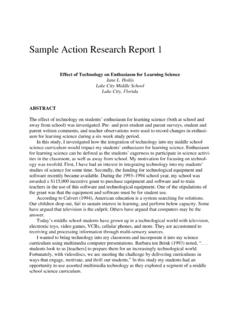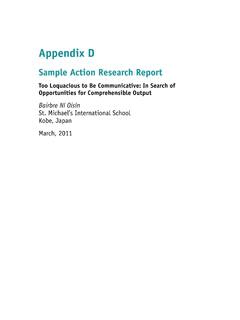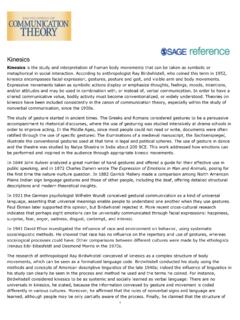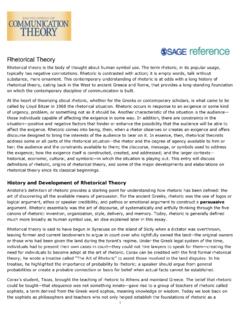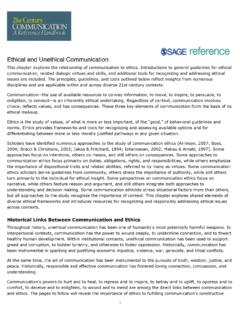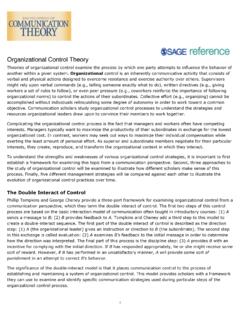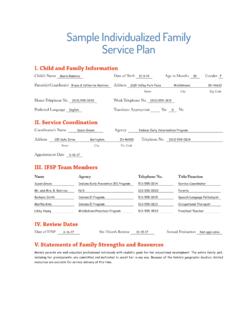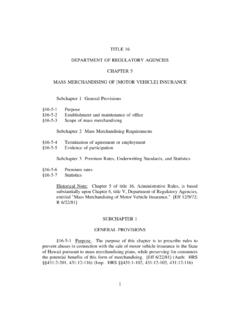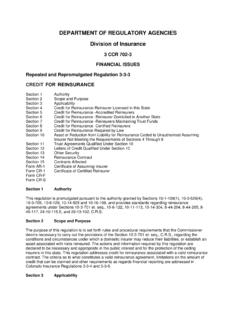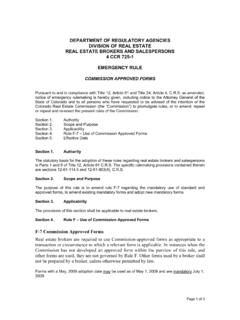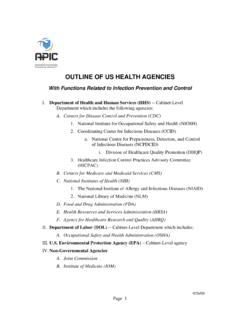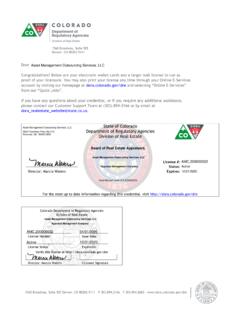Transcription of Federal Regulatory Agencies: Fourth Branch of …
1 Federal Regulatory agencies : Fourth Branch of Government February 5, 1969 A document from the CQ Researcher archives: Report Outline Spotlighting of the Regulatory agencies Evolution of Regulation by Commission Plans for Improving Agency Performance Special Focus Spotlighting of the Regulatory agencies Recent Sharp Criticism of Trade Commission Recent criticism of the Federal Trade Commission has directed attention to the part played by Federal Regulatory agencies in the American economy. A 185-page report by seven law students, made public Jan.
2 5, 1969, attacked members and staff of the for spectacular lassitude and office absenteeism, incompetence by the most modest standards, and lack of commitment to their Regulatory missions. Of Chairman Paul Rand Dixon, the report asserted that his chief and perhaps only contribution to the commission's improvement would be to resign from the agency that he has so degraded and ossified. Dixon, in an angry rebuttal four days later, called the authors of the report young zealots who had produced a hysterical, anti-business diatribe and a scurrilous, untruthful attack on the career personnel of the commission.
3 As evidence of the students' anti-business bias, Dixon cited a passage in the report calling for application of criminal sanctions to dishonest corporate behavior, for it [the report said] is far more damaging in contemporary America than all the depredations of street crime. The brief flurry of charges and counter-charges lifted the momentarily out of the obscurity in which it and other Federal Regulatory agencies usually operate. Although little known outside of the industries they regulate, the agencies have been called a headless Fourth Branch of government.
4 It has been said that the agencies probably account in sheer volume for the bulk of legislating and judging done by the Federal government. Associate Justice William O. Douglas declared a decade ago that The administrative agency is supreme. President Nixon, who favors reduction of government control over private enterprise, may undertake to reorganize some or all of the agencies , or to reshape their policies. The Republican party's 1968 platform said that Decentralization of power, as well as strict congressional oversight of administrative and Regulatory agency compliance with the letter and spirit of the law, are urgently needed to preserve personal liberty, improve efficiency, and provide a swifter response to human problems.
5 Nixon on Oversight of the Securities Business In a letter circulated privately among leaders of the securities industry and related businesses on Sept. 27, 1968, the Republican nominee for President evinced a highly skeptical attitude toward existing Federal regulation of the country's financial institutions. The fantastic growth of the securities industry, Nixon wrote, had raised sophisticated, complex questions which the Democratic party had met with the same tired old cure-alls ..; that is, more heavy-handed bureaucratic Regulatory schemes.
6 He promised that a Republican administration would undertake an exhaustive study of the country's financial institutions and would appoint an independent commission to determine the proper role which those agencies now regulating economic institutions are to play in insuring our nation's economic stability and growth. Our securities laws [Nixon added] were designed to protect the investor by insisting on full and complete disclosure. This has been the order of the day since the securities acts of the 1930s were written.
7 I believe in the full enforcement of the securities laws to assure absolute protection for the investor; abuses of law should be vigorously prosecuted. I believe, furthermore, that the Federal government should be continually sensitive to the needs for improvement in these laws to insure investor protection. The philosophy of this administration, however, has been that disclosure is not enough and that the government can make decisions for the investor better than he can make them himself. This philosophy I reject. The Nixon letter clearly was aimed at the Securities and Exchange Commission, which has proposed, among other things, reform of the mutual-fund industry and of brokerage commission rates.
8 Two major rule-making proceedings currently are under way at the The proposed rule that has evoked most criticism from industry would require corporate financial statements to show separately the financial record of each product line. The purpose of such a requirement would be to enable investors to determine whether a conglomerate corporation was hiding the poor record of a subsidiary behind a favorable over-all financial showing. The sharp tone of Nixon's letter gave rise to speculation that Chairman Manuel F. Cohen would not only step down from the chairmanship but would also resign from the commission.
9 If that happened, Nixon would be able to replace Cohen with a Republican commissioner, giving the a 3 2 majority, and to appoint a Republican as chairman. But these changes might not necessarily result in a less active The two Republicans now on the commission have voted with the Democratic majority to regulate management fees, limit sales commissions charged by dealers who handle mutual funds, and crack down on persons who leak or use inside information about publicly owned companies. Functions of Big seven Regulatory agencies The latest edition of the United States Government Organization Manual lists 47 independent Federal agencies , many of which perform Regulatory functions.
10 However, discussion of Federal regulation usually centers on activities of the so-called Big Seven -the Interstate Commerce Commission, Federal Trade Commission, Federal Power Commission, Federal Communications Commission, Securities and Exchange Commission, Civil Aeronautics Board, and National Labor Relations Board. Members of all seven agencies are appointed by the President for fixed terms. Agency chairmen serve, except in the case of , at the President's pleasure. And no political party may have more than a one-member majority on any of the Big Seven.
